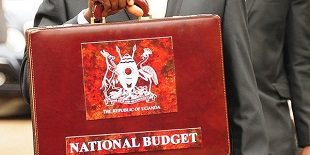
By Bob A Kasango
I agree the MPs should leave parliament and refund the monies, but I hold serious reservations on nullifying their nominations
The Constitutional Court decision in George Owor -vs. – Attorney General and Hon William Okecho delivered on the 1st of February 2011 has gained a fair amount of media attention and prompted strong responses both for and against the ruling.
The court ruled that it was unconstitutional for Mr. William Oketcho (the 2nd Respondent) to have continued to sit in Parliament as an “Independent” MP after participating in NRM party primaries, which was tantamount to “crossing party floors” and therefore in contravention of Article 83(1) (g) and (h) of the Constitution of Uganda. Consequently the Court unanimously ruled thus:
“… the 2nd respondent should have vacated his seat in Parliament before offering himself for election as a flag bearer of NRM. He did not. His nomination for election to the 9th Parliament is therefore invalid and null and void.”
This decision has caused strong reactions by those both in support of and in opposition to the ruling and the conflicting opinions have began their path to the Supreme Court.
Dr Akampumuza, the petitioner’s lawyer has appeared on TV in support of the decision and other lawyers in support have joined the chorus. Their basic drift is that the court was absolutely correct but they add another angle to their argument that: the decision being declaratory, cannot be stayed. This second tier of their argument is in response to an application for stay filed in the Supreme Court by Okecho.
However, those against the ruling argue that this was an unfair result. Their view is that;
the decision applies ONLY to Mr. William Oketcho.
that the court was wrong in finding that they are no longer MPs, and thirdly that
their nominations/candidatures should not be annulled.
Regardless of the debate on the fairness of the ruling, it is clear this decision will have implications for the ways in which people elected on particular party platforms, will conduct themselves in the future.
Court rulings, in and of themselves, do not provide impenetrable defences against the sort of conduct that the ruling castigated, but they may provide greater protection against such behaviour than was hitherto the case and in the future.
In my view, the contestations about the ruling have been odd and sometimes surprising. Article 83(1) (g) and (h) of the Constitution is abundantly clear and the intention of the framers of the Constitution was to avoid the culture of political prostitution that characterised Uganda’s Legislature in the 1960’s and 1980’s but more, to instil dignity and discipline in the House and multi-party politics.
Under a multi-party dispensation, the assumption is that candidates are elected on the platform of their party manifesto and it is the conviction by the electorate that Manifesto A represents their aspirations as opposed to Manifesto B that makes that particular candidate their choice and consequently their MP. For a person elected upon the platform of Manifesto A to get into the House and join a political party of Manifesto B, is the same as saying he/she no longer believes in what he presented to the people and therefore no longer represents their aspirations. This is the basic reason such persons are enjoined by the provisions of Article 83 to vacate their seats in the House the moment they take such a step. That, in my view, is the spirit of the law.
Therefore the debate as to whether those MPs that “crossed the floor” should continue to stay in the House or not, is a no-brainer. I agree with the decision of the court in its entirety to that extent. The operation of Article 83 of the Constitution is automatic and is triggered by the action or conduct of a particular Member of Parliament. In this case, the moment any of the affected members participated in the electoral process of a party other than the party he/she represents in the House and while still an MP, the provisions of Article 83 (1) (g) and (h) automatically came into force and applied to such persons. In other words they ceased to be MPs from that date. And so the decision of the court to that extent is beyond reproach and debate.
There are however some lawyers and political commentators that are advancing arguments that in my view are rather disingenuous and untenable. They argue that the ruling of the Court applies ONLY to Okecho since he was the party to the suit. That is absurd. Politicians and lawyers of this persuasion have not paid fundamental attention to the conferrals of declaratory reliefs.
Declaratory relief provides the most appropriate means for litigation of contentious issues having a significant public interest component. It has to be accepted that litigation not intended to enforce private rights but which has a public dimension (such as enforcing a norm of conduct established by statute for the protection of public interest – as in this particular case) should not be viewed from an unduly narrow prism. George Owor had no private right to enforce in that Constitutional petition, rather his petition was more of a public interest litigation and hence the declaratory orders by the court. Such orders once made, operate, in legal parlance, ejusdem generis, Latin for “of the same kind,” that is, where a law lists specific classes of persons or things and then refers to them in general. The general statements apply to the same kind of persons or things. In this case, the ruling applied not just to Okecho alone but to all MPs in a similar situation.
The ruling of the Court was declaratory in nature as opposed to substantive. The effect of a declaratory order is to authoritatively indicate the legal state of affairs as they exist at the time. The effect of the court’s order is NOT to create or negate rights but to merely identify the existence or non-existence of rights or duties. Declarations tell it as it is. As a result, a declaratory order is non-executory, it annot be enforced. And this is the line of argument that Dr Akampumuza and like-minded lawyers have strongly put forward. They are correct but not entirely, because declaratory orders can actually be stayed. Peter Walubiri and other lawyers have also argued that the journey to the Supreme Court is in vain to the extent that there is nothing to stay since the Constitutional Court only made declarations. The logical extension of that argument, from a conceptual perspective, is that there can be no stay of declaratory relief. A stay operates to prevent the execution of an order and with declaratory relief there is no execution to stay; the declaration has already done its work. However, the position is not that simple and this is where the general rule as to stay of declaratory orders should be departed from. I agree with Walubiri that the mere possibility or instigation of an appeal does not operate as, nor does it justify the grant of a stay. The legal arguments are more complex than is intended in this article.
The court did not only stop at making the declarations, the judges proceeded to make consequential orders. Particularly, they ordered the affected MPs out of the current Parliament and to refund all the emoluments received from the date they “crossed the floor” and that their nominations (for those presenting themselves for election to the 9th Parliament) are accordingly nullified. These are substantive consequential orders to the extent that they create and negate rights of the affected individuals.
It is these orders that in my view can and should be stayed.
I entirely agree with the first two orders, i.e. the MPs should leave Parliament and refund all monies so far received from the time they “crossed the floor”, including the infamous Shs20m!
However, I hold very serious reservations about the court’s last orders. Nullifying the nominations of the affected MPs is unjustified and not supported by any legal argument. If we agreed that the affected persons ceased to be MPs immediately they participated in activities of a political party other than that which they represented in the House, it means that from that point on, they had quit their parties, lost their seats and were free to associate with any other party. Why then is the Court penalising them for exercising their right to associate? There is no other legal impediment they faced in joining parties of their choice once they ceased to be MPs. That they continued to sit in the House is immaterial because their mistaken belief that they still were MPs is irrelevant in evaluating their subsequent actions in the electoral process.
It is for this reason that the stay of execution of this particular order was rightly granted pending the appeal. The legal arguments for the stay are not for this piece but are many and strong. Suppose the affected persons were barred from the campaigns and the Supreme Court found after the elections that their nominations were valid, how would they be compensated? No amount of money would compensate the loss of being “Honourable”.
Following the Court ruling, speculation was also rife as to the fate of laws passed with the participation of the affected MPs. Some commentators have argued that the laws are null and void. Again, I disagree. The mere participation of persons who mistakenly thought they were MPs, in the passing of the laws does not render those laws invalid. Our laws cater for that.
Secondly, the validity or invalidity of such laws is a question of quorum. If a law is passed in a situation where the number of persons believing they were MPs whereas not, is such that without such persons there would have been no quorum, then the law would be invalid for the reason that it was passed without quorum. However, if after deducting the number of such persons from the MPs present and voting on the day the law was passed, and quorum is still achieved, then the law is valid and it is immaterial and of no consequence that those masqueraders participated in the proceedings on the day.
 The Independent Uganda: You get the Truth we Pay the Price
The Independent Uganda: You get the Truth we Pay the Price


